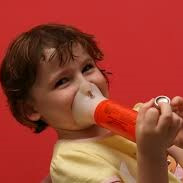This disability category is characterized by having limited strength, vitality, or alertness, including a heightened alertness to environmental stimuli, that results in limited alertness with respect to the educational environment, that is due to chronic or acute health problems such as asthma, attention deficit disorder or attention deficit hyperactivity disorder, diabetes, epilepsy, a heart condition, hemophilia, lead poisoning, leukemia, nephritis, rheumatic fever, sickle cell anemia, and Tourette syndrome, and adversely affects a child’s educational performance.
Eligibility *
The current eligibility criteria for the Other Health Impairment category under state law is found in Title 14 Education Delaware Administrative Code Section 925. If a student is found to have a disability, the Individualized Education Program (IEP) team must also determine the need for special education and related services (6.0 Determination of Eligibility).
According to the Delaware Administrative Code, in order for an IEP team to determine eligibility for special education services under the Other Health Impairment category, the following is required:
- Documentation from a qualified physician that a child has a chronic or acute health problem.
- For ADD and ADHD, the above requirement and a school team of qualified evaluators that determine the child exhibits specific symptoms of inattention and/or hyperactivity impulsivity as outlined in 925 6.1.14.2.1-6.14.2.6.
Age of Eligibility: The age of eligibility for children with Other Health Impairments shall be from the third birthday until the receipt of a regular high school diploma or the end of the school year in which the student attains the age of twenty-one (21), whichever occurs first.
* Retrieved from Title 14 Education Delaware Administrative Code.
Helpful Resources
Office of Early Learning
Delaware Department of Education
Dover, DE 19901
(302) 735-4295
early.learning@doe.k12.de.us

